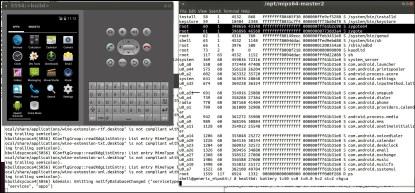



Feature Story
More feature stories by year:
2024
2023
2022
2021
2020
2019
2018
2017
2016
2015
2014
2013
2012
2011
2010
2009
2008
2007
2006
2005
2004
2003
2002
2001
2000
1999
1998
 Return to: 2014 Feature Stories
Return to: 2014 Feature Stories
CLIENT: prpl FOUNDATION
Oct 23, 2014: EE Times
Rob Isherwood, Imagination Technologies
A key step in enabling the earliest use of new open technology is to locate a true common purpose within a specific group made of both developers and users. This is required to deliver both focused changes and a level of practical delivery to allow their mutual goals to be achieved.
The prpl Foundation is an open-source collaborative organization focused on enabling the use of next-generation processor hardware within a wide range of market areas. However, when the newest thing in town is a new type of embedded processor, there is quite a cast to be assembled and rehearsed in order to be ready for the software show to succeed, including compilers and tool chains, operating systems, and libraries. Then the applications can take the leading roles to embellish the plot, deliver punch lines, and line up their targets to be ready for the upcoming season.
Quick EMUlator (QEMU) is an open-source emulator and hypervisor (a.k.a. our "stage") that runs a variety of guest binaries at high speed using dynamic binary translation technology. QEMU can already emulate more than a dozen guest central processing unit (CPU) architectures, including pre-existing MIPS solutions, while executing on an available Linux desktop or mobile platform -- a "theatre" near you.

With QEMU, the "sets" being used are quite portable, enabling the realization of most operating systems like Linux without modification. Its ability to also run user-land Linux applications without a kernel means that tool-chain and library developers can practice their roles in isolation while such "background scenery" is completed. QEMU is already being supported by the open source community, which has numerous individual and corporate developers. QEMU is best known for its enabling use in the first Android software development kits, so if you have big ambitions, there are no limits to what can happen next.
The prpl focus groups define and manage individual source branches based on the feature sets required by their users, with an intention of achieving a stable solution and retaining it for actual use. For QEMU itself, the changes done to the prpl QEMU branches are submitted and resolved into the upstream QEMU to appear within new, stable versions of QEMU later.
Imagination Technologies, a prpl Foundation member, is contributing to implementations of its scalable 64/32-bit MIPS Warrior family of processor cores within QEMU. We are doing this in order to enable the use and exploitation of these implementations by the widest audience within the ecosystem requiring early access to upcoming MIPS CPUs for open embedded and desktop software, tools, and systems. Working together with the prpl Foundation for QEMU enables Imagination Technologies to reach an audience eager to exploit the newest features of MIPS processors as early as is practically possible.
To join the evolution of prpl, any form of contribution is more than welcome. The easiest way to be involved will be reporting bugs or suggesting ideas. There is step-by-step guidance from the PRPL Foundation wiki that facilitates starting from scratch. Full source and relevant documents are publicly accessible via the prpl Foundation and Imagination websites. An email discussion group is also available and is just waiting for those new ideas to take shape. Meanwhile, I welcome all questions and comments.
-- Rob Isherwood is senior director of software and architecture at Imagination Technologies.
Return to: 2014 Feature Stories